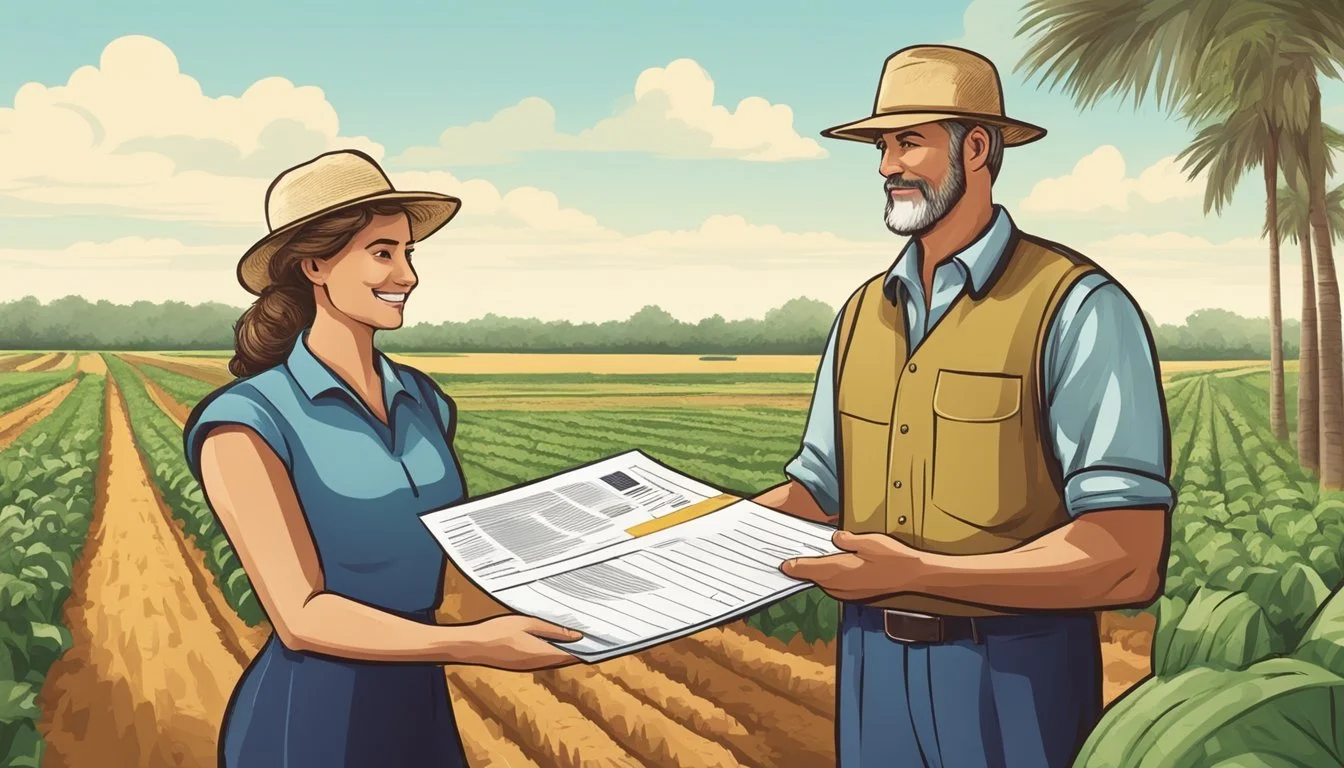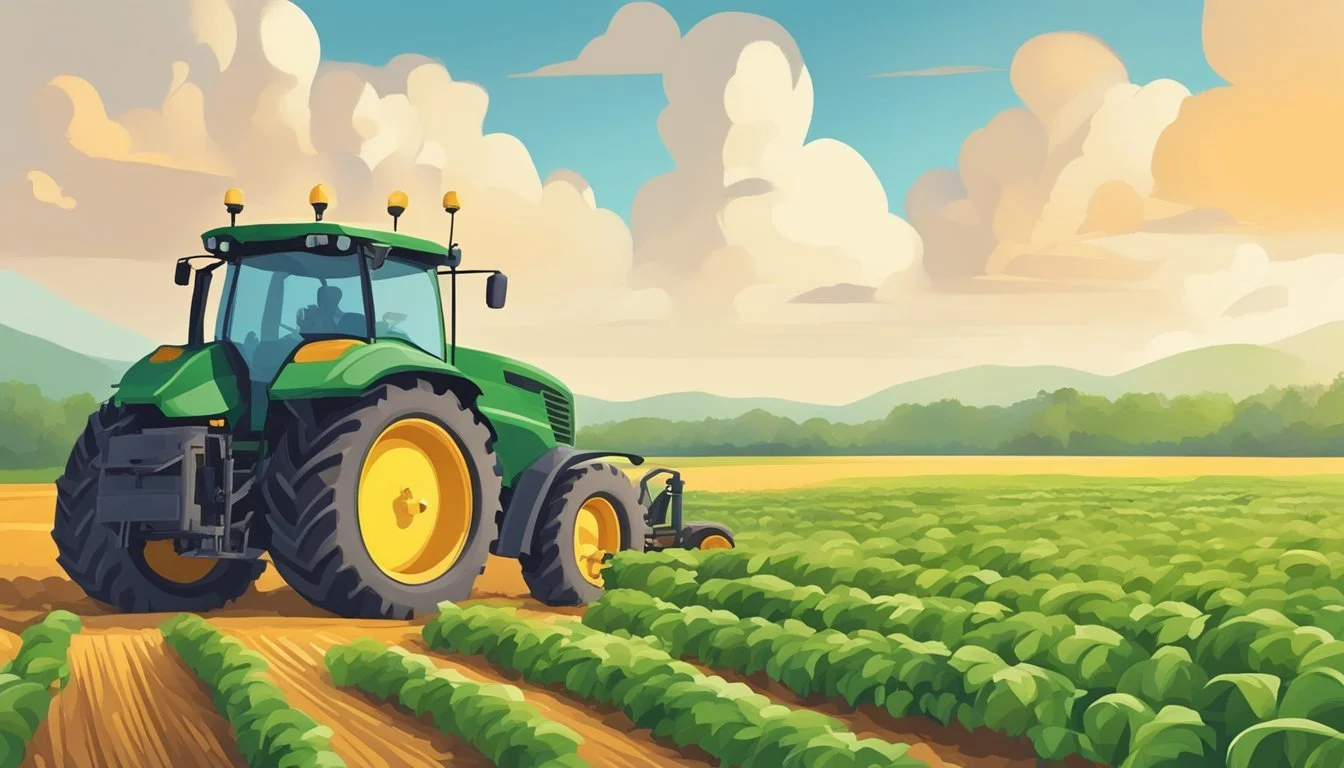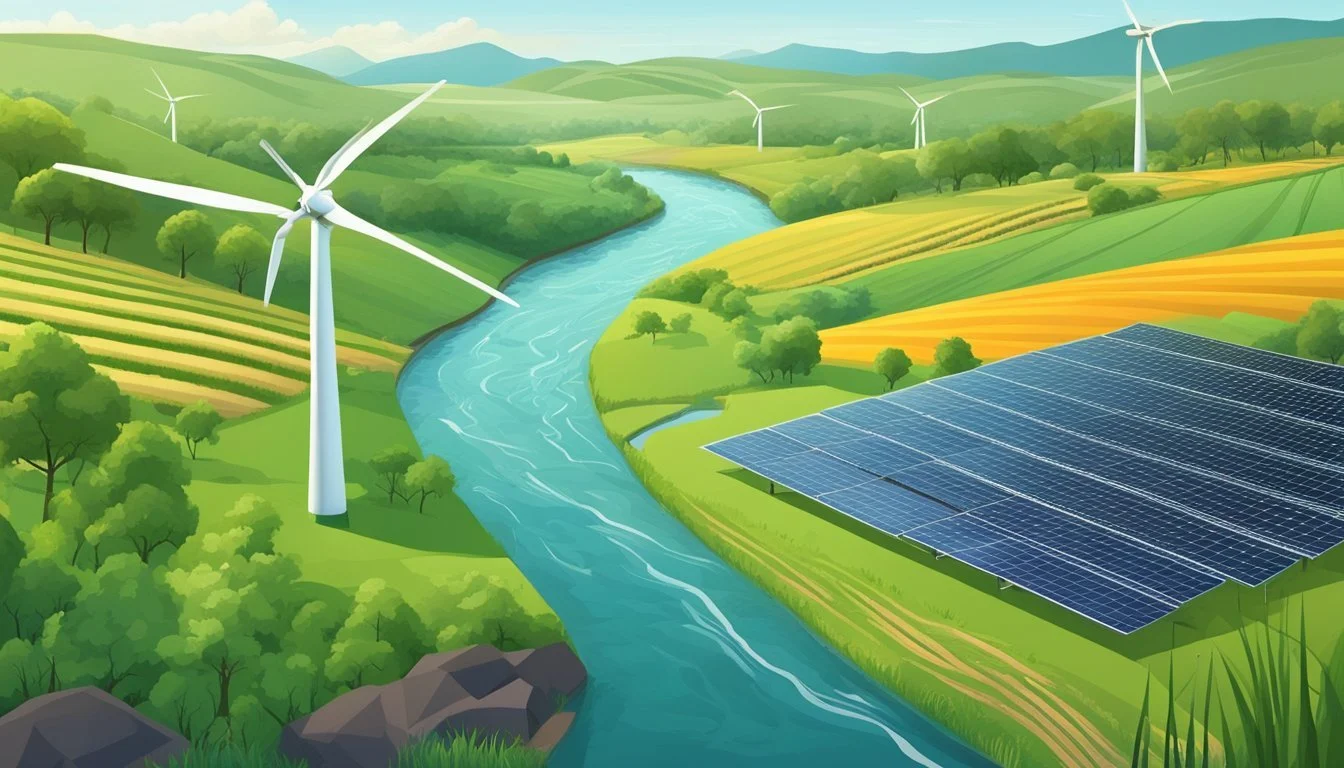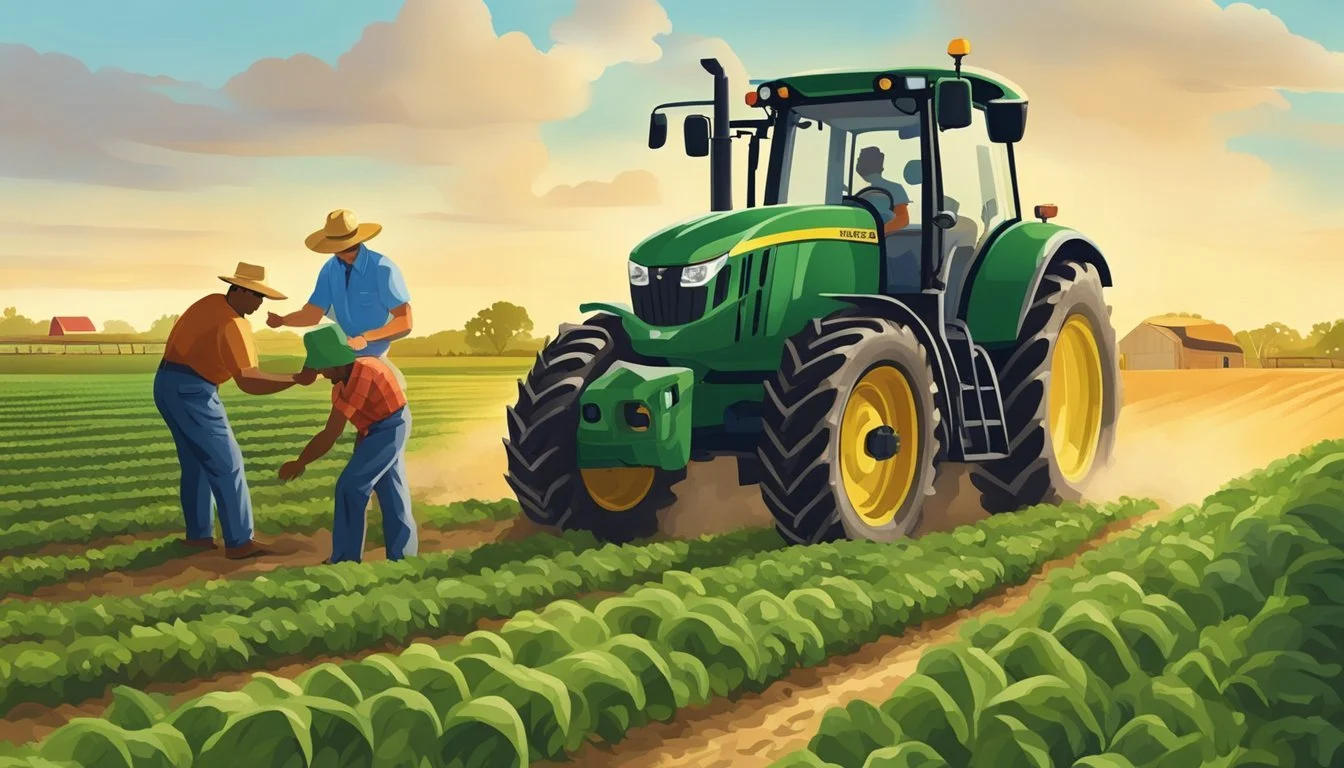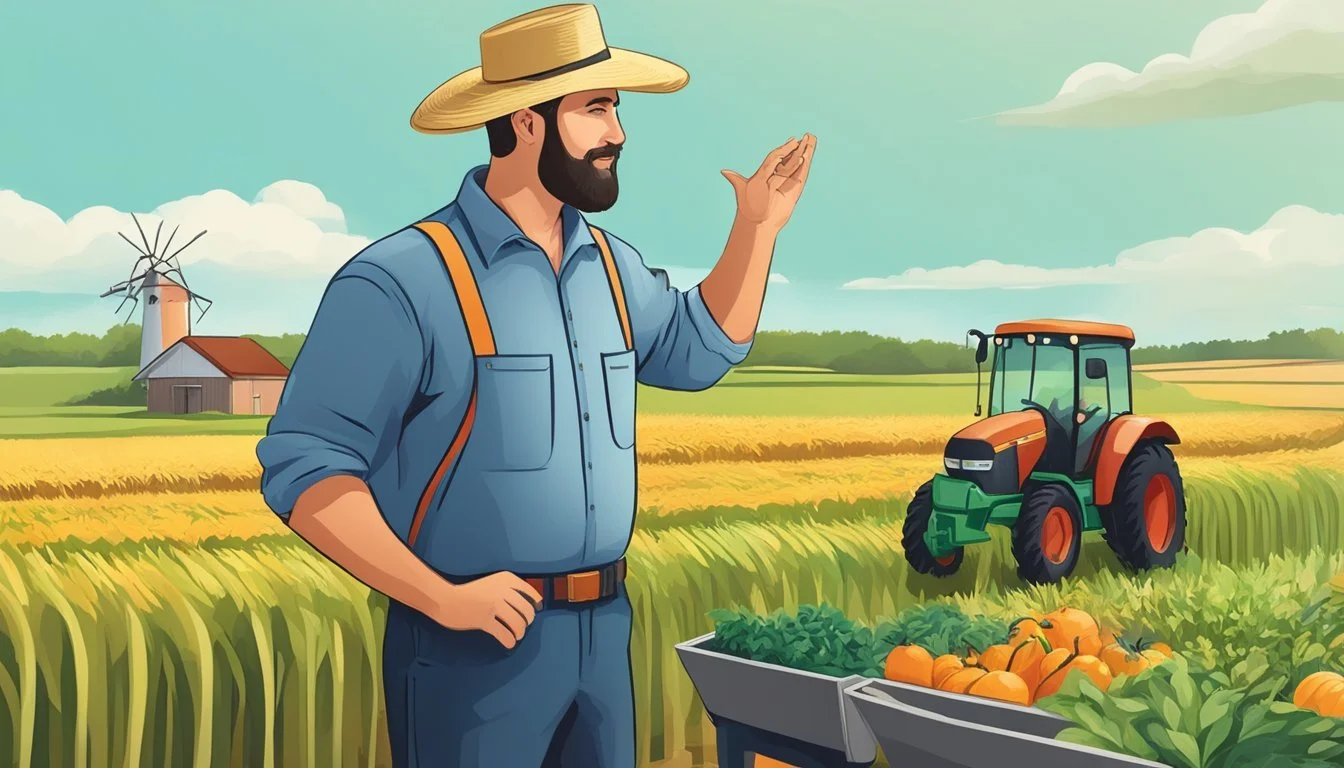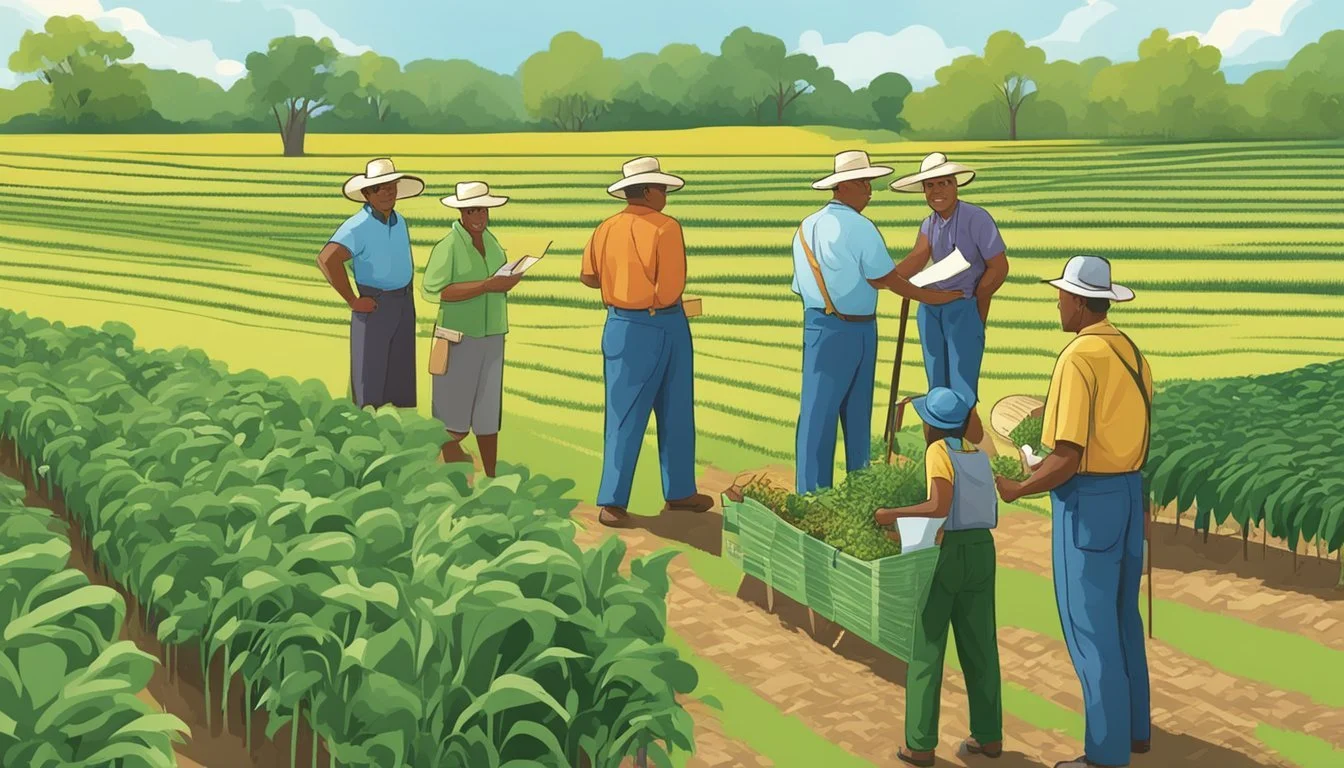Farming Grants Florida
Unlocking Opportunities for Local Agriculturists
Agriculture remains a cornerstone of Florida's economy, and the state acknowledges the industry's needs by offering a range of farming grants and loan programs. These financial incentives aim to support the state's agricultural businesses, helping them to thrive and grow. Both federal and state-level aid options are available, touching on various facets of farming and rural development. The USDA, through the Farm Service Agency in Florida, provides eligible applicants with funds to purchase or expand family farms and promotes soil and water conservation.
In conjunction with federal programs, the Florida Department of Agriculture and Consumer Services facilitates access to various grants and loans aimed at bolstering the state's agricultural infrastructure. These opportunities are distinctive to each division and carry unique award criteria, suitable for a spectrum of agricultural endeavors. Grant opportunities are continuously updated and can be easily accessed through the FDACS website, which acts as a useful resource for community members seeking financial assistance for sustainable forestry or other farm activities.
Understanding the spectrum of farming grants and loans in Florida is key for farmers and agricultural businesses looking to invest, upgrade, or embark on environmentally responsible farming practices. Local utilities in Florida may also apply for funding support on behalf of specific projects through the Rural Economic Development Loan & Grant Program, demonstrating the collaborative approach to rural economic advancement. Whether through capital improvement loans or direct grant funding, Florida's agricultural sector is well-supported by a robust framework designed to nurture and sustain the state's rural communities and farming enterprises.
Eligibility Criteria for Farming Grants
Understanding the qualifications for farming grants in Florida is critical for farmers to take advantage of the financial support available to them. These grants may vary based on various factors such as experience level, project type, and location.
Qualifications for Beginning Farmers
Beginning farmers in Florida may be eligible for specific grants designed to reduce barriers to entry for new participants in agriculture. The USDA provides the Beginning Farmer Down Payment Loan, which enables them to finance a portion of real estate purchases vital for farming operations. Eligible applicants must meet the following criteria:
No ownership: They must not have owned a farm in the past three years.
Participation level: They should participate in the operations of the farm.
Local Florida agencies may have additional programs with separate requirements tailored to support new farmers within the state.
Regional Eligibility and Local Programs
Eligibility for farming grants often focuses on the geographical and community-specific aspects of agriculture. Programs such as the Southern Pine Beetle Assistance and Prevention Program target landowners in Florida to manage pine stands and reduce susceptibility to pests.
Various USDA grants are available throughout the year, benefiting agribusinesses in various Florida regions, including counties, towns, bay areas, and lakes. These include but are not limited to:
Rural Economic Development Loan & Grant Program: Aimed at supporting specified local projects through funding support to local utilities, with a maximum loan amount of $2 million.
Value-Added Producer Grants: Offered to entities like socially-disadvantaged farmers or small-medium sized farms, particularly those structured as family farms or cooperatives.
To identify local programs applicable to their area, Florida farmers should consult county and town agencies, as well as local USDA service centers, to access full program details and regional eligibility requirements.
Types of Agricultural Grants
Agricultural grants in Florida cater to a wide range of needs, from land conservation and market competitiveness to research and innovation. These grants aim to support the agricultural community comprehensively, covering state and federal programs, as well as research and development initiatives.
State and Federal Grants
Florida Department of Agriculture & Consumer Services offers programs such as the Community Forest Program, designed for land conservation and accessible community benefits. The Florida Specialty Crop Block Grant Program and the Florida Specialty Crop Multi-State Program aim to enhance the competitiveness of specialty crops.
The USDA through its Farm Service Agency in Florida also provides funds particularly for beginning farmers and socially disadvantaged applicants. These are part of the direct farm ownership loan funds and are in accordance with mandates from the Consolidated Farm and Rural Development Act.
Additionally, the Value Added Producer Grants are available to independent producers, agricultural producer groups, and farmer- or rancher-cooperatives, facilitating the ability of producers to develop products that add value to their businesses.
Research and Development
Research and innovation grants focus on empowering producers and state agencies to explore new market opportunities and enhance the marketing system’s efficiency. The USDA's FSMIP (Federal State Marketing Improvement Program) is a matching grant program that serves this purpose.
Similarly, federal assistance programs like the Environmental Quality Incentives Program (EQIP) and the Conservation Stewardship Program (CSP) support fiscal year 2024 funding for projects that contribute to environmental quality and conservation on agricultural lands. These initiatives are part of the USDA NRCS efforts to fund efforts which merge practical agriculture production with environmental enhancements.
Loan Opportunities and Financial Aid
Farmers in Florida can access various loan opportunities and financial aid programs to support their agricultural practices. These financial solutions range from farm loans and credit options to assistance in the wake of natural disasters.
Farm Loans and Credit
Farmers in Florida have access to USDA Farm Service Agency programs offering direct farm ownership loans with a maximum loan amount of $200,000. This program serves beginning farmers and socially disadvantaged applicants, aiming to facilitate farm acquisition and expansion. Additionally, the Rural Economic Development Loan and Grant Program provides up to $300,000 for establishing a Revolving Loan Fund and loans up to $2 million for local projects supported by the local utility through USDA funding.
Disaster Assistance and Crop Insurance
In the face of natural disasters, Florida farmers can rely on USDA programs for disaster assistance and crop insurance. These programs are designed to mitigate the financial impacts of unforeseen events that threaten agricultural production. Financial support helps farmers recover from losses and maintain the economic stability of their operations. This assistance ensures that adverse weather or other damaging events do not compromise the viability of agricultural businesses in Florida.
Business Development and Marketing
Florida's agriculture sector can access various programs aimed at enhancing business development and marketing strategies. These initiatives offer resources to effectively sell products, formulate business plans, and manage operations with a goal to boost market presence and profitability.
Selling and Promotion Strategies
Farmers and producers can benefit from the Rural Business Development Grants (RBDG), which provide support for marketing and promotion activities. A concrete example is the Local Food Promotion Program that aids in the expansion of local and regional food businesses, offering intermediaries opportunities to market produce more effectively to consumers, thereby increasing local and regional agricultural product availability.
Producers aiming to improve their marketing initiatives can tap into programs focused on:
Market research
Marketing plan development
Promotion and advertising
Branding initiatives
These programs highlight the importance of strategic marketing efforts to increase the visibility and appeal of agriculture products to consumers in Florida.
Business Planning and Management
The Value-Added Producer Grant (VAPG) assists agricultural producers in engaging in value-added activities, leading to new product development and broader marketing opportunities. This is critical for producers aiming to diversify their income streams and reinforce their market position.
For strategic business planning and management, these grants focus on:
Development of business plans
Management and operational strategies
Financial planning
These elements are essential for farmers to navigate the competitive market in Florida and to ensure sustainable agricultural enterprises.
Sustainable Farming and Conservation Efforts
In Florida, sustaining agriculture while conserving natural resources is the core of various programs offered to farmers and land managers. These initiatives, supported by both state and federal entities, focus on enabling productive farming practices that are environmentally responsible.
Conservation Programs
The U.S. Department of Agriculture (USDA) Natural Resources Conservation Service (NRCS) provides Conservation Innovation Grants (CIG) that support the development and implementation of innovative conservation approaches and technologies on agricultural lands. Eligible parties for these competitive grants include agricultural producers and forest landowners in Florida. These programs aim to:
Improve water quality
Enhance soil health
Increase wildlife habitat
Technical assistance is often provided alongside financial aid to ensure the success and adoption of sustainable practices. Programs like the Environmental Quality Incentives Program (EQIP) and the Conservation Stewardship Program (CSP) offer both financial assistance and expert advice to agricultural producers who undertake conservation efforts on their lands.
Urban Agriculture
The NRCS recognizes the importance of urban agriculture in Florida as a component of the conservation efforts. Urban agriculture initiatives address challenges unique to urban settings through:
Promoting climate resilience
Enhancing local food production
Support for urban agriculture often comes in the form of grants that are smaller in scale but critical for the development of urban farming practices. These grants help fund projects that create productive green spaces, community gardens, and small-scale agricultural ventures within urban areas.
The state of Florida also recognizes the importance of urban agriculture in contributing to food security, resource conservation, and the local economy, encouraging urban dwellers to transform their landscapes into productive agricultural assets.
Grant Application Process
In Florida, successful grant applications for farming initiatives hinge on meticulous proposal preparation and a thorough understanding of pertinent regulations. Entities seeking funding should approach the application process with diligence and attention to detail.
Preparing Grant Proposals
Grant proposals should begin with a clear plan. They must articulate the project’s goals, the methods to be implemented, and the expected outcomes. A comprehensive budget plan is crucial, earmarking funds for specific aspects of the project. Proposals could be enhanced by including educational components where applicable, demonstrating the project’s value beyond immediate agricultural concerns. When drafting the proposal, applicants should:
Outline the objectives: Define what the farming project intends to accomplish.
Enumerate action steps: Detail how these objectives will be achieved.
Budget accordingly: Provide an itemized financial plan.
Incorporate education: If relevant, explain how the project includes an educational angle.
Understanding Policies and Regulations
Grasping the policies and regulations related to farming grants in Florida is non-negotiable. Each grant might have different requirements concerning the use of funds, eligibility criteria, and reporting obligations. Applicants must familiarize themselves with:
Federal and state guidelines: Comply with rules set forth by entities like the Florida Department of Agriculture & Consumer Services.
Grant-specific conditions: Adhere to the deadlines and criteria of programs such as the Value Added Producer Grants or the Rural Economic Development Loan & Grant Program.
Submission regulations: Abide by submission timelines; for example, electronic applications for certain grants may be due earlier than paper submissions.
By adhering to these guidelines and drafting strong proposals, applicants enhance their chances of securing funding to support farming endeavors in Florida.
Local Extension Services and Technical Support
Local Extension Services in Florida offer a range of technical support and resources designed to aid farmers in grant acquisition and agricultural best practices. Through county and area offices, experts provide guidance and consultation that address the specific needs of local agricultural communities.
County and Area Offices
County and area offices are essential hubs for the Florida Cooperative Extension Service, operating as a collaboration between state, federal, and county governments. Farmers can locate their nearest office, including but not limited to the Suwannee, Jefferson, and Alachua County offices, to access services tailored to their regional needs. The University of Florida (UF) and Florida A&M University (FAMU) administer these local outposts, ensuring a direct link to the latest scientific knowledge and expertise. For instance, the St. Croix office specializes in providing resources relevant to the unique agricultural environment of the region.
Regional Support Availability:
Suwannee County: Suwannee Extension Office, local programs and support.
Jefferson County: Jefferson Area Office, grants expertise and consultation.
Alachua County: Alachua Extension Service, field days and educational materials.
St. Croix Office: Specialized assistance for diverse agricultural practices.
Expert Guidance and Consultation
Extension services provide expert guidance and consultation to farmers seeking technical assistance. This includes help with identifying appropriate grants, understanding the criteria for each opportunity, and assistance throughout the application process. Specialists at local offices leverage their in-depth knowledge to advise on best practices for sustainable farming and resource conservation. Through a combination of classes, computer networking, one-on-one consultations, and workshops, Florida's Extension professionals deliver essential education and support to the state's agricultural community.
Consultation Services Offered:
Technical Assistance: Detailed guidance for navigating grant processes.
Expert Consultations: One-on-one meetings to offer customized advice.
Educational Programs: Workshops and classes grounding farmers in necessary know-how for grant success.
Success Stories and Case Studies
Within Florida's vibrant agricultural sector, grants have enabled remarkable strides in sustainable farming and innovative agricultural practices. Here, we explore the impactful journeys of farms that leveraged funding to revolutionize their operations.
Successful Grant Beneficiaries
Speedling Incorporated stands out as a recipient of the Agricultural-Environmental Leadership Award in 2017 by the Florida Farm Bureau Federation. Their commendable use of water-efficient irrigation techniques has led to an impressive 80% reduction in water usage compared to traditional methods.
Cindale Farms, a small dairy farm in Marianna, Florida, combined their farming operations with an artisanal venture, forming Southern Craft Creamery. Grants have facilitated their growth, allowing them to sustain both their dairy production and their successful ice cream business.
Innovative Farming Practices
At St. Simon's Farm in Indiantown, Florida, Moses Kashem implemented high tunnels, also known as hoop houses, to create a more controlled growing environment. This innovation has led to reduced pest and disease pressure, particularly in the production of organic cherry tomatoes. Such improvements are largely attributed to the strategic use of grants aimed at on-farm research and sustainability.
On-Farm Research Grants have spurred a collective movement among Florida's agricultural professionals. These grants foster collaboration between researchers and farmers, giving rise to new methodologies that are both sustainable and effective. Through grant support, these partnerships are crucial in identifying and scaling innovative farming tactics.
Note: There are no records of Jeffrey Archer, Loria Phillips, Bruni Robles, Stephanie Hodges, Angela Smith, or Ada Rivera in relation to farming grants in Florida within the provided information or current knowledge base.
Additional Resources and Contacts
This section provides essential information for farmers in Florida seeking grant opportunities and support services, including direct points of contact and educational events for enhancing agricultural practices.
Government Agencies and Representatives
Contacts for Technical Assistance and Education:
Kimme Bryce, Area Director
Location: North Ft. Myers
Provides guidance on federal programs and resources.
Counties with Agricultural Extension Services:
Escambia, Holmes, Okaloosa, Santa Rosa, Walton
Offer local expertise and assistance for farmers.
Conduct research and provide educational resources.
State and Federal Departments:
Florida Department of Agriculture and Consumer Services (FDACS)
Offers state grants and technical resources for farmers.
Website: FDACS Grant Opportunities
Natural Resources Conservation Service (NRCS)
Supports conservation efforts through Conservation Innovation Grants.
Can be contacted for information on current grant applications and eligibility.
Educational Workshops and Seminars
Opportunities for Farmer Education:
Workshops designed to help farmers understand grant applications, sustainable farming methods, and resource management.
Seminars focusing on innovation in agriculture, often featuring new tools and technologies beneficial to farm operations.
Representative Programs:
Clean Vessel Act Grant Program
Includes educational outreach as part of funding for environmental protection efforts.
USDA Farm Service Agency
Hosts sessions to assist beginning and socially disadvantaged farmers in Florida with loan applications and program information.
Future of Farming in Florida
The landscape of agriculture in Florida is shaped by innovative technologies and the state's response to environmental changes. This dynamic sector is poised to evolve with ongoing advancements and adaptations.
Emerging Technologies and Trends
In Florida's agricultural scene, innovation plays a key role in shaping the future of farming. The integration of emerging technologies, such as precision agriculture tools and artificial intelligence, is transforming traditional farming practices. These advancements provide technical assistance by optimizing irrigation, enhancing crop yields, and reducing labor costs. Florida farmers are increasingly adopting:
Drones: For crop monitoring and data collection.
Sensors: To precisely manage water usage and soil conditions.
Robotics: Aids in harvesting and reduces manual labor.
Florida's commitment to agricultural innovation is evident in its support for grants and educational programs aimed at equipping farmers with cutting-edge tools and knowledge.
Impact of Environmental Changes
Florida's agriculture must continuously adapt to the impact of environmental changes, particularly the increase in heat and frequency of extreme weather events. Farmers are seeking ways to create resilient systems to mitigate these challenges. Some of these methods include:
High Tunnels: Improve pest and disease control, which is crucial in tropical climates.
Climate-Smart Practices: Address impacts through advanced soil management and water conservation methodologies.
Through state and federal grants, such as those offered by the USDA's Environmental Quality Incentives Program (EQIP), Florida farmers are able to implement practices that help combat the effects of heat and climate change. These adjustments ensure the longevity and sustainability of Florida's agricultural industry.
Frequently Asked Questions
What is the Specialty Crop Block Grant Program (SCBGP)? The SCBGP aims to boost the competitiveness of specialty crops. It is not designed for starting a farm or business, purchasing land, or capital improvements.
Are USDA farm loans available in Florida? Yes, the USDA Farm Service Agency offers loans, with a maximum amount of $200,000. Specific funds are allocated for beginning farmers and socially disadvantaged individuals.
Are there matching funds requirements for grants? For the Value Added Producer Grants in Florida, a cost share match of 100 percent of the grant amount is compulsory.
Can community forests grants be found in Florida? The Florida Department of Agriculture & Consumer Services facilitates a Community Forest Program, which helps in land conservation and community forest establishment.
What technical assistance is available for startup farms? The UF/IFAS Sarasota County Extension offers a Small Farm Start-up School providing business planning, farm tours, farmer panels, and expert presentations, along with a Small Farmer Incubator program initiated in 2023.
Program Name Assistance Type Details Florida Specialty Crop Multi-State Program Grant Enhances competitiveness of specialty crops. USDA Farm Loans Loan Up to $200,000 with allocations for beginners and disadvantaged groups. Value Added Producer Grants Grant Includes planning and working capital grants with matching requirements. Community Forest Program Grant Supports land conservation for community use.



